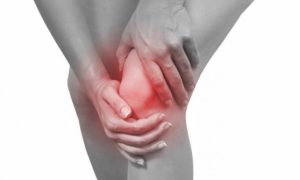Uncover the answers to the most searched questions about constipation, with practical solutions for quick relief and prevention.
Constipation is a common yet often overlooked issue that impacts people of all ages. With millions of searches online about this condition, it’s clear that many are looking for answers. From identifying the root causes to finding practical solutions, this article explores the most searched questions about constipation and provides actionable tips to maintain digestive health.
Read More: Heart Health 101: Lifestyle Changes to Prevent Sudden Cardiac Arrest
What Causes Constipation?
Constipation happens when bowel movements become infrequent, and stools become hard and difficult to pass. It can be triggered by various factors, including:
► Low Fiber Diet: A diet lacking in fruits, vegetables, and whole grains leads to poor digestion.
► Dehydration: Insufficient water intake dries up stools, making them harder to pass.
► Sedentary Lifestyle: Lack of movement slows down the digestive process.
► Stress: High levels of stress can disrupt gut health and regularity.
► Medications: Certain drugs, such as painkillers, antidepressants, and antacids, may cause constipation.
How Can You Relieve Constipation Quickly?
If you’re feeling the discomfort of constipation, here are some quick remedies to bring relief:
► Stay Hydrated: Drinking water or herbal teas helps soften stools.
► Add Fiber: High-fiber foods like chia seeds, flaxseeds, and spinach can work wonders.
► Exercise: A brisk walk or yoga stimulates bowel movement.
► Over-the-Counter Remedies: Stool softeners or laxatives like polyethylene glycol can be effective.
► Natural Laxatives: Prunes or prune juice are gentle yet powerful in aiding digestion.
Foods to Avoid When Constipated
While some foods promote digestion, others can make constipation worse. Here’s what to avoid:
► Processed Foods: Chips, cookies, and frozen meals lack fiber and nutrients.
► Dairy Products: For some, excessive cheese or milk can slow digestion.
► Red Meat: Difficult to digest and low in fiber, red meat can exacerbate constipation.
Instead, focus on fiber-rich alternatives like oatmeal, beans, lentils, and fruits with the skin on.
When Should You See a Doctor?
Occasional constipation is normal, but chronic cases may need medical attention. Consult a doctor if:
► Symptoms persist for more than three weeks.
► You experience severe abdominal pain or rectal bleeding.
► There is unexplained weight loss or fatigue.
Doctors may recommend further tests to rule out underlying conditions such as irritable bowel syndrome (IBS) or intestinal blockages.
Read More: 10 Ways To Soothe Joint Pain During The Winter Months
How Can You Prevent Constipation?
Preventing constipation is easier than treating it. Adopt these habits to keep your digestive system healthy:
► Hydrate Daily: Aim for at least eight glasses of water each day.
► Eat Fiber-Rich Foods: Include fruits, vegetables, whole grains, and legumes in your diet.
► Stay Active: Regular exercise, such as walking or yoga, improves gut motility.
► Don’t Delay: Respond to the urge to use the restroom promptly.
► Establish a Routine: Train your body by visiting the restroom at the same time daily.
The Squatty Potty Secret
Did you know your posture can make a big difference? Elevating your feet using a small stool while sitting on the toilet mimics a squatting position. This aligns your colon and makes elimination easier and more natural.
Constipation can be uncomfortable and inconvenient, but it’s manageable with the right approach. By understanding its causes, using practical remedies, and adopting preventive measures, you can maintain better digestive health and lead a more comfortable life.
(This article is meant for informational purposes only and must not be considered a substitute for advice provided by qualified medical professionals.)



































